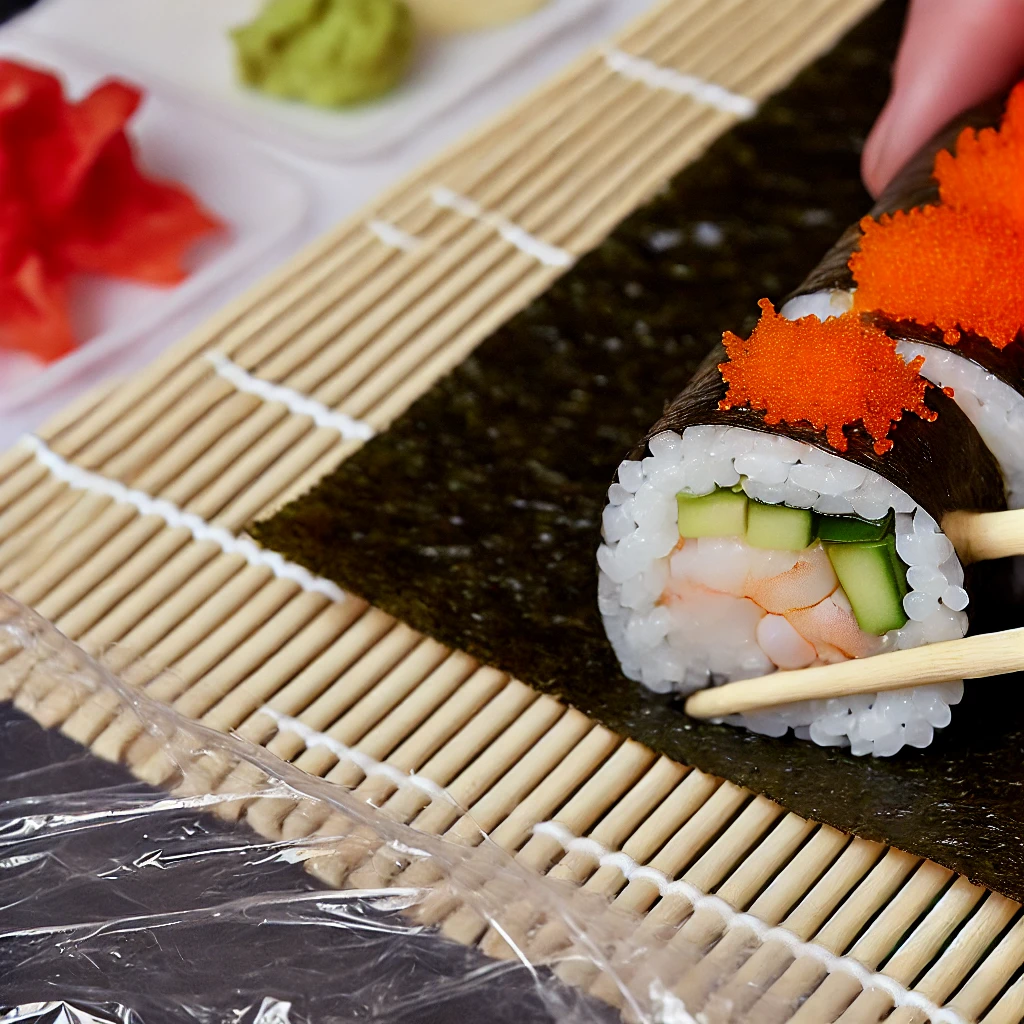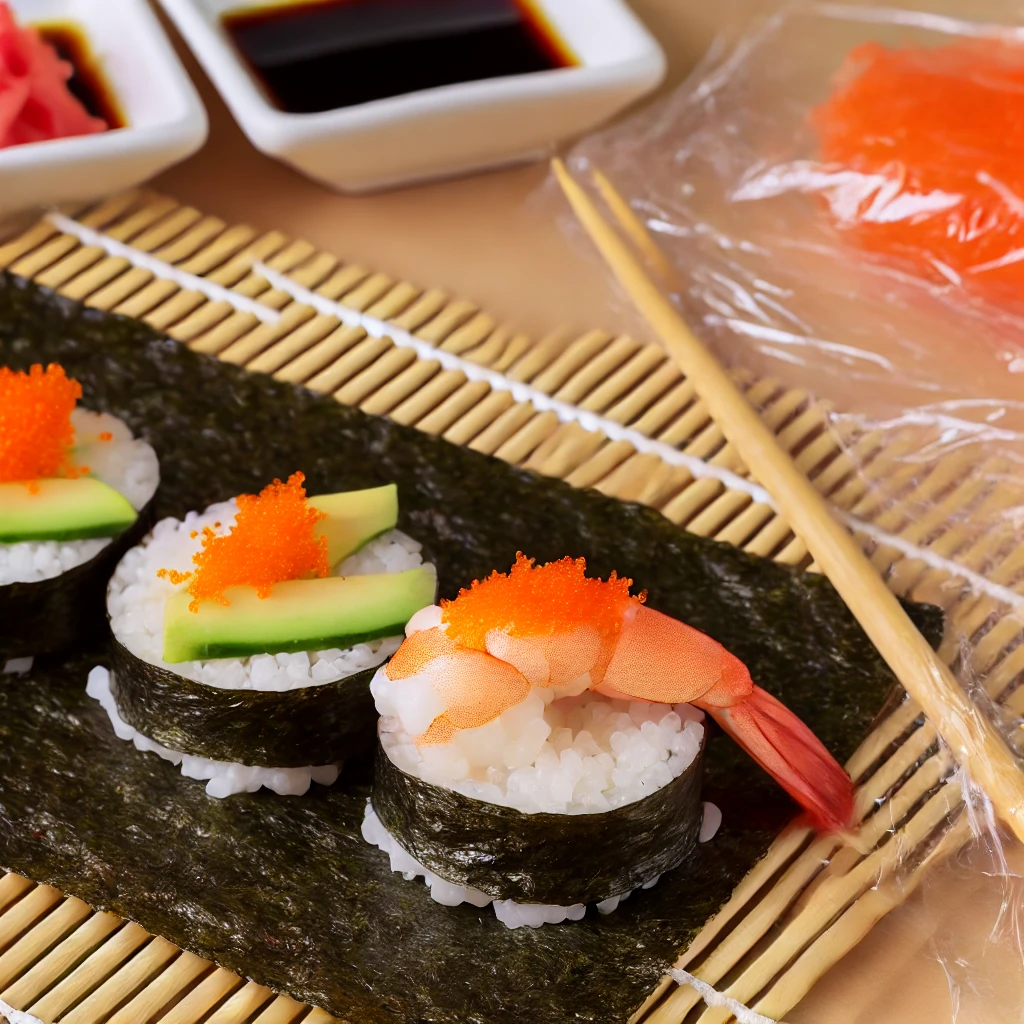Boston Roll Recipe delicious
 View Gallery 2 photos
View Gallery 2 photos Boston Roll Recipe delicious
Description
Boston Roll Recipe
The Boston roll is a staple of American-style sushi. Made in an uramaki fashion, with rice on the outside and nori on the inside, its fillings include a simple yet satisfying combination of poached shrimp, crisp cucumber, and creamy avocado. What truly sets this roll apart is the addition of tobiko, or fish roe, on the outer layer of the rice. The briny, crunchy, and vibrant orange or red roe adds a delightful pop to every bite. If tobiko isn’t available or is outside your budget, you can easily substitute with seaweed, caviar, or even a sprinkle of furikake seasoning.
To create a restaurant-quality meal, pair your Boston roll with homemade seaweed salad and tempura for an elevated experience.
For poaching shrimp, bring a medium pot of salted water to a boil. Add the shrimp, cover, and take the pot off the heat to let the shrimp cook gently. In just 2 to 3 minutes, the shrimp will be fully cooked and opaque. Chill them before using in your sushi. A climate-friendly tip: opt for sustainably sourced shrimp, or ask your fishmonger for recommendations—frozen shrimp is often a great, eco-friendly choice.
To make a Boston roll and other sushi varieties like rainbow rolls, Philadelphia rolls, or dragon rolls, you'll need a bamboo rolling mat.
Ingredients
For the Sushi Rolls:
For the Rice:
Instructions
Sushi Rolls:
Rice Preparation:
Step 1
Place the rice in a medium bowl and cover it with cold water. Gently swirl the rice with your fingers to release the starches, then drain the water. Repeat this process about three more times until the water runs mostly clear. Once done, fill the bowl with cold water again and soak the rice for 30 minutes. Drain thoroughly before cooking.Step 2
In a rice cooker or medium saucepan, combine the soaked rice, kombu, and 2/3 cup of water. If using a rice cooker, set it to the sushi or white rice setting. For a saucepan, bring the water to a boil over high heat, then cover, reduce heat to low, and let it simmer for 12 to 15 minutes until the rice is fully cooked. Remove the pan from heat and let it steam, covered, for about 10 minutes until the rice becomes swollen and fluffy. Discard the kombu afterward.Step 3
Spread the cooked rice on a small baking sheet or a 13x9-inch dish. In a small bowl, whisk together the vinegar, sugar, and salt until the sugar dissolves. Drizzle the vinegar mixture over the rice, then gently fold it in using a wooden spoon or rice paddle. Be careful not to over-mix, as this will make the rice too sticky. Smooth the rice into an even layer and let it cool for about 30 minutes.
Sushi Rolls:
Note
Tips
- Use Fresh Ingredients: Ensure your fish, vegetables, and other fillings are fresh to enhance the taste and texture of your sushi.
- Keep Your Hands Wet: Sushi rice is sticky, so keep a bowl of water nearby to wet your fingers when handling the rice. This prevents it from sticking to your hands.
- Don’t Overfill the Roll: Too much filling will make it difficult to roll the sushi tightly. A thin, even layer of fillings will result in a better roll.
- Tight Rolling: Use the bamboo mat to tightly roll your sushi. Apply gentle pressure to ensure the roll stays together, but don't press too hard.
- Sharp Knife for Slicing: Use a very sharp knife to slice the sushi roll. Wet the knife blade between cuts to avoid tearing the nori and rice.
- Add Vinegar to Rice Properly: When seasoning the rice with vinegar, fold it gently to avoid making it too sticky while still distributing the flavor evenly.
- Work with Plastic Wrap: When rolling inside-out sushi (with the rice on the outside), use plastic wrap to help keep the rice from sticking to the bamboo mat.
- Experiment with Fillings: Try various combinations like salmon and avocado, or even add cream cheese or spicy mayo for a twist.
- Serve Fresh: Sushi is best when eaten fresh, so serve your rolls shortly after making them.
- Use Tobiko for a Pop of Color: If you want a restaurant-style presentation, topping your sushi with tobiko or fish roe adds a vibrant, crunchy element.
(Boston Roll,Boston Roll,Boston Roll,Boston Roll,Boston Roll,Boston Roll)







